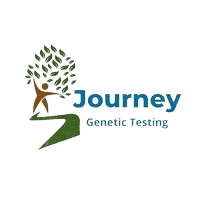Discreet Paternity & Kinship Testing
Recent developments in genetic testing technology have created new opportunities for people looking for information about their ancestry, health, and relationships to their family.
The practice of secret DNA testing using different samples has evolved, in contrast to the traditional method of DNA testing, which includes willing individuals supplying mouth swab or blood samples. Through this concealed method, DNA information can be obtained by individuals without the other person’s knowledge or consent.
There are many reasons why someone may want to do a discreet DNA test. These include:
Privacy
The desire to maintain one’s privacy is a major driving force behind covert DNA testing. Some people might be reluctant to divulge their genetic information for fear of exploitation or possible prejudice. They can investigate their genetic composition through “covert”secret” testing without disclosing private information to outside parties.
Revealing Hidden Truths
People may be able to learn previously unknown details about their biological heritage, parentage, or ties through secret DNA testing. Adoptees looking for their biological parents or people suspecting adultery in their families have both employed this technique.
Knowing The Facts To Avoid Family Discord
Relationships and family dynamics can be completely destroyed by information gleaned through covert DNA testing. Unexpected parenthood or long-kept family secrets can cause emotional upheaval and irreversible harm to family ties, so it is best to have the proof a DNA test offers before raising these issues.
Discreet testing can be done to determine the truth about relationships with the following DNA tests:
- Home Paternity Test
- Home Sibling DNA Test
- Home Grandparent DNA Test
- Home Avuncular DNA Test
- Home Maternity DNA Test
- Y-Chromosome DNA Test (males only)
- Twin Zygosity Test
Medical Insights
Without involving family members, some people use covert DNA testing to learn more about their hereditary susceptibilities to different health disorders. This can be especially important for people who worry about being stigmatized or subjected to prejudice because of their genetic composition.
Independence and Autonomy
Individuals who prefer to take control of their genetic information may find secret DNA testing empowering. It allows them to make decisions about their health and heritage without external influence.
Conclusion
As technology continues to advance, the ethical considerations surrounding genetic testing will remain a crucial aspect of the broader conversation on privacy and autonomy in the digital age. Ultimately, the responsible use of genetic information should prioritize transparency, consent, and respect for the rights of all individuals involved.
To learn more about what you can test for DNA other than mouth swabs, go to Alternative DNA Samples.

